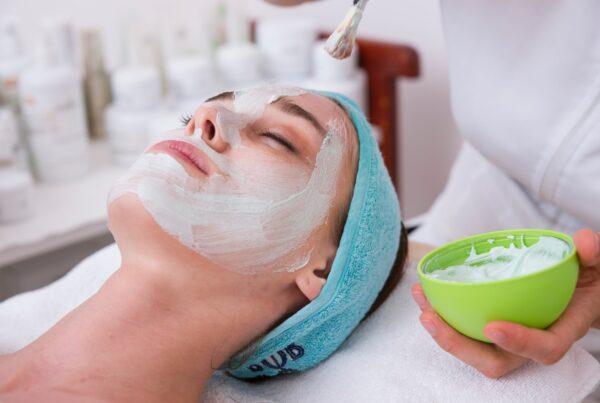Oily skin develops when your skin’s sebaceous glands create an excessive amount of sebum, a waxy, oily material. Sebum keeps your skin moisturized and protects it from excess moisture, but too much of it can leave you with a filthy complexion and increase your risk of pimples and acne breakouts.
Stress, humidity, heredity, and hormonal swings are just a few of the causes of oily skin. Fortunately, there are things you can do to less oily skin and the risk of breakouts, such as frequent face washing, at-home skincare remedies, and over-the-counter topical treatments.
What causes oily skin and how can it be managed?
There are many underlying causes that lead to oily skin such as:
- High-glycemic diets: They are high in sugar and simple carbs may promote sebum production. Simple carbohydrates may raise growth hormone levels in the body, resulting in more oil. Further study is needed, however recent studies have discovered a correlation between low-glycemic diets and less oil consumption.
- By the use of the wrong Skincare products: If you utilize items that tear down your skin barrier, you are likely to have lost the critical oils and moisture that your skin requires. This might cause your sebaceous glands to create excessive sebum, making your T zone oily. Items containing harsh chemicals and substances can also cause your cheeks and the rest of your face to dry out.
- Inherited from Genetics: If your parents have oily skin, you may be more likely to inherit it from them and experience it yourself.
- Age: Even if you don’t always outgrow having oily skin, as you get older, your skin does start to generate less sebum. In addition to the sebaceous glands slowing down, aging skin loses proteins like collagen. Because of this, many individuals with aging skin also have dry skin. Due to a shortage of collagen and sebum, this is also the time when fine lines and wrinkles are more visible. One advantage of having oily skin is that you might not age as quickly as people with dry skin.
- Overtaking your skincare routine: Keeping up with a skincare routine is a fantastic way to take care of your skin, but doing it too often might result in oily skin. When you wash or exfoliate your face again and again, your sebaceous glands may go into overdrive as a result and create more oil to make up for the loss. To control excess oil, you only need to wash your skin twice per day.
Your skin may become more oily and dry out if you don’t wear sunscreen.
- Climate: Individuals in hot, humid areas typically have oilier skin. Also, compared to the fall or winter, the summer is when you’re most likely to have oilier skin. Because of your oily skin, you might not be able to pick up and leave, but you can change your normal routine on days with a lot of heat and humidity.
After reading the causes of oily skin, one must solve them after reading the remedies to all these oily skin problems days:
- Washing your face twice a day: You should wash your face twice a day with a good quality facewash to remove dead cells and dirt from your skin which reduces the oil percentage on your face and gives you bright-looking skin.
- Applying moisturizers daily: Even if you have oily skin, moisturizers should still be used to keep your skin hydrated. Save time by applying sunscreen and avoiding the sun’s damaging UV rays.
- Avoid touching your face throughout the day: Touching your face, again and again, will transfer germs to your face from your hands which leads to oily skin.
- Never use a foaming facewash: Many individuals think that in order to dry up their skin, they must use a potent face cleanser for oily skin. Yet using a face cleanser that is excessively abrasive might irritate your skin and cause it to produce more oil. Choose a soft, mild face wash instead.
- Sunscreen is a MUST when outside: Using sunscreen can help stop UV damage that could cause skin cancer, age marks, and even wrinkles. Avoid using sunscreens with smell or oils and opt for products with zinc oxide and titanium dioxide to avoid acne outbreaks.
- Always add a toner to your skincare routine: Employ a toner to help balance your skin’s pH and get rid of any last bits of oil and impurities. In order to assist reduce oil production, look for a toner that contains salicylic acid or alpha-hydroxy acids.
- Adding some vitamins and minerals to your diet: Omega 3, vitamin B, zinc, magnesium, and omega 3 are all known for controlling the oil glands.
What are the best skincare ingredients to use for oily skin?
- Hyaluronic acid: Hyaluronic acid is useful since it dispels the all-too-common idea that greasy skin doesn’t need to be hydrated. Your skin often responds by creating extra oil in order to compensate for the fact that it feels parched when it is dehydrated, whether from a harsh cleanser or the dry air, for example.
Because of this, it’s really more crucial than ever to moisturize oily skin so that it doesn’t overproduce oil to do this on its own. To achieve the greatest effects, use a serum and apply it in layers beneath your moisturizer.
- Niacinamide: The substance, often known as vitamin B3. This component aids in controlling sebum production, which can reduce oiliness. Moreover, it possesses anti-inflammatory qualities that might aid in soothing sensitive skin. So, a moisturizer containing niacinamide will not only aid in hydrating your skin but also stop it from trying to overcompensate with its own oils.
- Retinol: This substance encourages the creation of collagen and cell renewal, which can assist to enhance the skin’s general texture and look. By accelerating cell turnover and eliminating blocked pores, it can help decrease oiliness.
Conclusion
It’s crucial to remember that having oily skin does not always indicate that your skin is unhealthy and that it can be controlled with the right skincare regimens and lifestyle choices. Moreover, be sure to maintain a regular skincare regimen and stay away from harsh or drying treatments that might deplete the skin of its natural oils. Also, use the above-stated ingredients for better and healthy skin.










